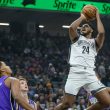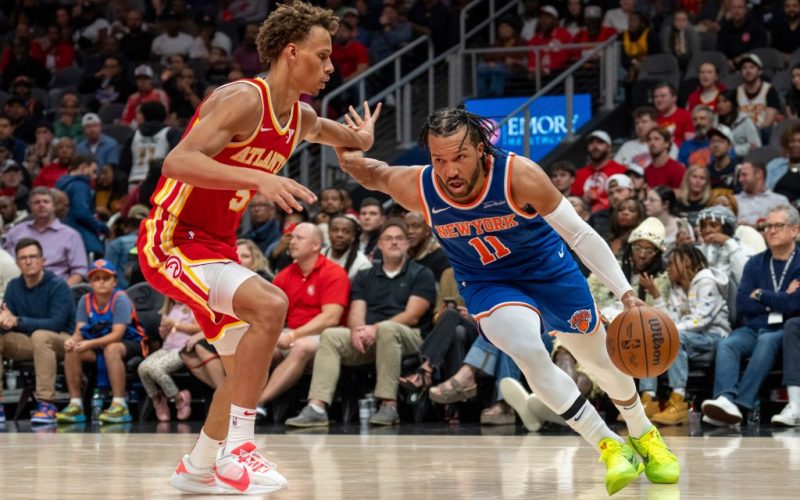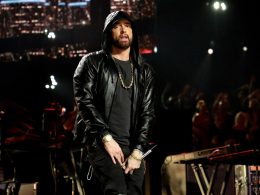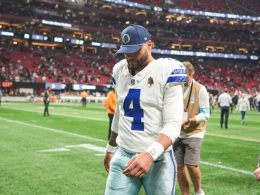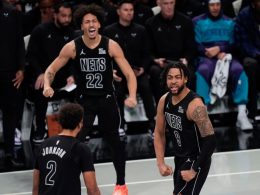INDIANA — The absence of Aaron Nesmith and Andrew Nembhard from the Indiana Pacers’ lineup changed the landscape of Sunday’s game against the Knicks at Gainbridge Fieldhouse.
Typically, Knicks captain Jalen Brunson finds himself at the center of a relentless defensive strategy — a cross-match defensive effort deploying longer, stronger, more athletic players to hound him at the point of attack. It’s a tactic that has only grown in popularity, honed through playoff battles and regular-season matchups where opponents strive to contain the Knicks’ primary playmaker.
For Brunson, facing a barrage of defenders is nothing new. Knicks head coach Tom Thibodeau noted that this defensive focus on Brunson has been a “multiple-year” ordeal, especially evident last postseason when the Philadelphia 76ers relied on 6-foot-7 wings Kelly Oubre Jr. and Nicolas Batum to shadow him. Then, in the second round, Indiana’s stocky defender Nesmith and the tenacious Nembhard took on the role, determined to disrupt Brunson’s flow.
But on Sunday, Nesmith was sidelined with an ankle injury, stuck in a walking boot until at least December, while Nembhard sat out with a sore left knee, which is expected to keep the pest on the shelf for a couple of weeks. Former Knicks forward Obi Toppin also missed the game due to an ankle sprain, and Knicks veteran Cameron Payne remained out for the fourth consecutive game with a hamstring strain.
Despite the shorthanded lineup, the Pacers’ usual defensive tactics loomed large. Brunson has faced bigger, tougher defenders in his last three games: Dillon Brooks in Houston, Dyson Daniels in Atlanta, and a combination of Milwaukee’s Andre Jackson Jr. and Taurean Prince. But without Nesmith and Nembhard, Sunday’s matchup lacked the Pacers’ two primary defensive disruptors.
“It’s not a new revelation. The game tells you what to do,” Thibodeau explained pregame. “Read the game. There’s probably a little more physicality this year across the board. So the faster we play, the harder it is for them to hold him.”
—
The Knicks’ emphasis on speed isn’t a secret — it’s a key to maximizing their wealth of shooters and playmakers. But Thibodeau also pointed out that defining “pace” in today’s NBA is complex. Officially, the Knicks rank last in pace (95.69) according to league stats. Yet, they’re third in three-point percentage (40.5%), just behind the league-leading Cavaliers and Celtics, and boast the third-highest offensive rating (119.1 points per 100 possessions), making them sixth in net rating overall.
“There’s so much gray area,” Thibodeau said. “Offensive rating, three-pointers generated, free throws, how early in the clock you’re shooting — it all matters. Sometimes, if you’re making the opponent use more clock, there’s fewer possessions. But we’re scoring plenty. I think we’re 5th or 6th in points allowed now, so there’s a lot of good markers we have. And we have to focus on our area of improvement.”
Thibodeau stressed the importance of a balanced offense. While he’s all for taking more threes, he clarified that they aren’t the only shots worth prioritizing.
“You also have to understand the value of shots,” Thibodeau noted. “It’s not just all threes. You want as many layups as you can get, get to the line, create open threes, and sometimes the mid-range is the shot that’s there. But you want a balance. You have to understand the math of the game: if someone’s making 20 threes, and you’re making 10, it’s going to be pretty hard to win that game.”
—
On the Pacers’ side, head coach Rick Carlisle highlighted how the NBA has found a balance in its scoring trends after what he called a “scoring crisis” in the late ’90s and early 2000s, followed by what he described as “scores going all crazy” last year.
“The NBA should be a physical game, and it’s harder to get threes now; everybody’s trying to get good threes,” Carlisle said. “Teams like Boston and Charlotte — they’re shooting 50 threes a game from way deep, and they’ve got people crashing, chasing, and reloading. That’s one philosophy. But from a competitive standpoint, I’ve never seen the league as competitive top to bottom as it is now. Every night, you’re in a slugfest to try to win an NBA game, and that’s great news for the product.”
The competitive depth Carlisle describes was on full display as the Knicks faced a Pacers squad missing some key defensive pieces, forcing both teams to adjust on the fly.

